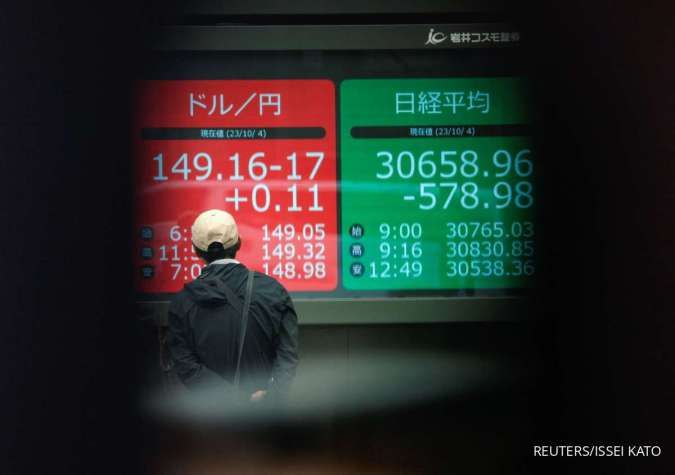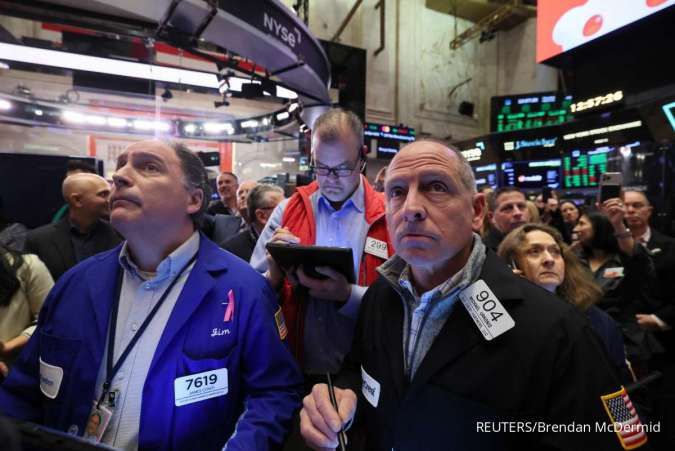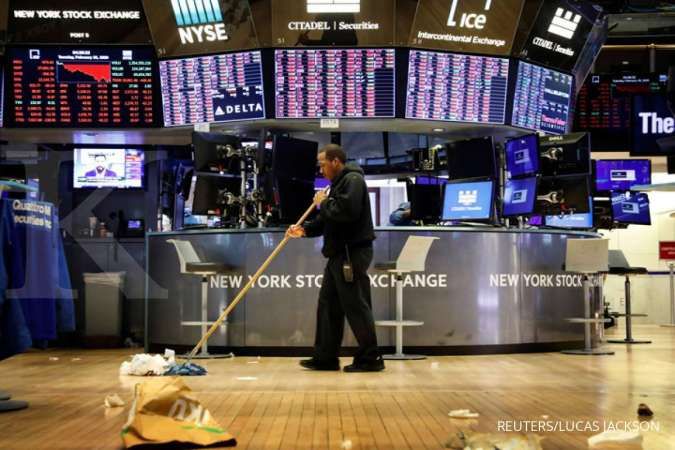KONTAN.CO.ID - SINGAPORE. Asian shares started the week on a subdued note on Monday, while the dollar was steady as investors weighed when the U.S. Federal Reserve will start cutting rates in the wake of yet another blowout jobs report. Oil prices fell more than 1% as Middle East tensions eased after Israel withdrew more soldiers from southern Gaza, while gold prices extended their record rally and touched a new all-time high. MSCI's broadest index of Asia-Pacific shares outside Japan was 0.17% higher, while Tokyo's Nikkei rose 0.78%.
Baca Juga: UK Foreign Mminister David Cameron: UK Support for Israel 'is Not Unconditional' European stock markets looked set for a muted open, with Eurostoxx 50 futures up 0.04%, German DAX futures up 0.05% and FTSE futures 0.10% higher. E-mini futures for the S&P 500 eased 0.10%. Data on Friday showed U.S. job growth blew past expectations in March and wages increased at a steady clip, suggesting the economy ended the first quarter on solid ground. "Resilient economic data are a double-edged sword for markets," said ANZ strategists in a note. "On the positive side, resilient growth indicates an economy far from recession, but it could also mean the Fed will keep rates higher for longer." Markets are now pricing in a 48% chance of an interest rate cut from the Fed in June, the CME FedWatch tool showed, down from around 60% a week earlier, with July shaping up to be the new starting point for the eagerly awaited easing cycle. Investors are also pricing in 62 basis points of cuts this year, less than the 75 basis points the Fed has projected.
Baca Juga: China Top EV Forum to be Held in California in May Investor focus this week will be on the U.S. consumer price index (CPI) report, which is expected to show core inflation slowing to 3.7% in March from 3.8% the prior month. If inflation data in the next two months show a downward trend, the Fed may still be open to a rate cut in June, according to Vasu Menon, managing director of investment strategy at OCBC Bank in Singapore. "But if the trend in January and February of sticky, slowing disinflation persists, then a reassessment may be in order." Meanwhile, China mainland stocks reopened after extended holidays from Thursday, with the blue-chip gauge 0.45% lower. Hong Kong's Hang Seng Index rose 0.33%. RISING YIELDS The changing expectations on the outlook for U.S. rates have lifted Treasury yields, with the two-year Treasury yield, which typically moves in step with interest rate expectations, up 4.8 basis points at 4.780%, the highest in over four months. The yield on 10-year Treasury notes was up 4.6 basis points to 4.424%.
Baca Juga: Wall St Week Ahead-US Stocks' Lofty Valuations in Spotlight as Earnings Season Nears The elevated yields boosted the dollar, with the euro down 0.04% to $1.0831, while sterling was last at $1.2627, down 0.07% on the day. The Japanese yen weakened 0.11% to 151.77 per dollar as traders remain on alert for possible intervention by Japanese authorities. Nicholas Chia, Asia macro strategist at Standard Chartered, said the yen will be vulnerable to a materially strong U.S. CPI report, with "intervention speak likely to be back on the agenda". The dollar index, which measures the U.S. currency against six rivals, was at 104.34.
The European Central Bank is due to meet later this week and is widely expected to keep rates steady. Investors see almost no chance of a cut on April 11 but have fully priced in a move for June, followed by another two or three steps later this year. In commodities, spot gold added 0.6% to $2,343.49 an ounce, having breached record peak last week. U.S. crude fell 1.51% to $85.60 per barrel and Brent was at $89.75, down 1.56% on the day. Israel and Hamas sent teams to Egypt for fresh talks on a potential ceasefire ahead of the Eid holidays, easing tensions in the Middle East that drove up oil prices by more than 4% last week on concerns of supply disruption.






